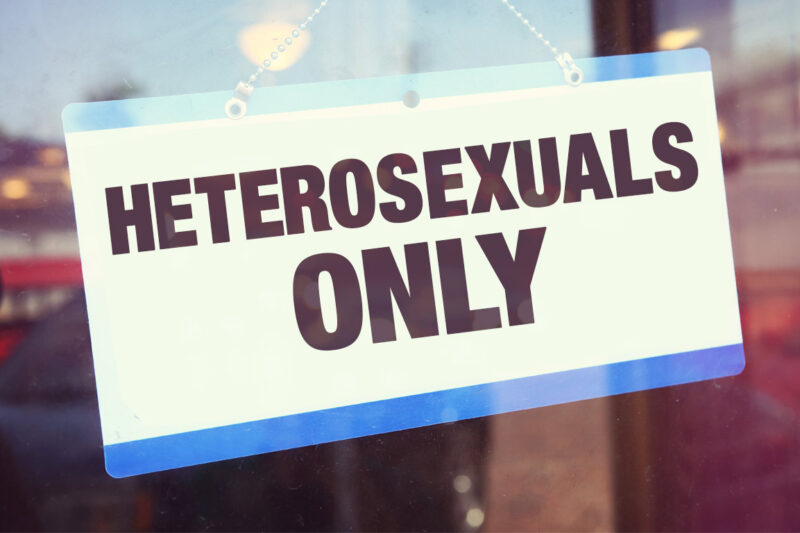
As a gay person, I grew up knowing I was different. Hearing other kids call anyone who deviated from traditional gender expectations a “fag.” Getting called a “lesbo” at age 11. I hadn’t come out to anyone and didn’t even really understand what it meant, but I knew it was an insult.
At an early age, we learn that it’s at best different to be LGBT. And many of us are taught that this difference is bad — shameful, deviant, disgusting. We might try to hide it. We might wish it away. We learn that even if our family accepts us, there are some relatives who might not; we get asked to hide who we are so as not to make them uncomfortable.
This teaches shame.
We hear about LGBT people who have been physically attacked or even killed for being who they are.
This teaches fear.
While I know I grew up with privilege, and others have stories far worse than mine, I also believe that countless other LGBT people could tell stories like this — not the same, but all rooted in a legacy that made us feel ashamed of who we are. And yet I, like many of us, also learned pride and hope and found a community that loves me and makes me feel welcome.
Those experiences are part of why I care so much about the Masterpiece Cakeshop case. A decision in support of the bakery would open the door to sweeping discrimination. What’s at stake isn’t just whether we have the freedom to go about our daily lives and purchase the same things that others are able to buy. That’s part of it, but it’s not the whole picture.
We never leave those initial experiences of shame and discrimination behind completely. Our sexual orientation may or may not be readily visible to others. How we dress or how we act might identify us as gay but it might not, and it won’t in all circumstances.
Even with a girlfriend — even holding hands — people don’t always see a couple. I have to decide whether to come out or hide again and again — at the doctor’s office, at my child’s school, when talking about weekend plans with colleagues — because people usually assume heterosexuality. Gay people think about when to hold hands or kiss goodbye in public. Sometimes, it will be a matter of safety. The fact that straight couples don’t have to think about these questions is a reminder of difference. And every time I do come out, some part of me still wonders whether, in this moment, I’ll find that my community has grown larger or if I’ll face rejection — or worse.
The Colorado law that’s being challenged by the bakery in the Masterpiece Cakeshop case says that businesses that open their doors to the public can’t discriminate based on race, religion, sex, disability, gender identity, or sexual orientation. Laws like Colorado’s aim to make sure that when we walk through the doors of a store or hotel, we all have the same freedom to buy a cake, eat a meal, or rent a room. They say to LGBT people, “you matter, and you shouldn’t be mistreated because you are gay, lesbian, bisexual or transgender.”
This case isn’t about the cake. It’s about a legacy of discrimination and devaluation and a rejection of our shared humanity.
Through laws like Colorado’s, we start to trust those assurances and feel more confident living our lives. But when a business owner says, “No, we won’t serve you because you’re gay,” all that humiliation resurfaces.
That’s why it’s inappropriate to tell us — as the and the do in this case — to just go to a different bakery. This isn’t just about the services. It’s about the harm that being turned away causes. It’s about how shame and fear prevent us from fully feeling safe and participating in public life. It’s about the pain of our children seeing us, and them, rejected, or the pain of our parents watching, unable to protect us. And it doesn’t matter if it’s just one store. Because once we are refused, every time we approach the door of a store, we wonder how we will be treated and are more likely to hide who we are. That comes at a steep cost.
The bakery is arguing to the Supreme Court justices that the Constitution protects their right to refuse to serve gay people, to tell people like me, like Dave and Charlie, and countless others that they object to our relationships and therefore refuse to serve us. But this case isn’t about the cake. It’s about a legacy of discrimination and devaluation and a rejection of our shared humanity.
And yet it’s also a case about hope, promise, and love. The hope that the court will recognize that all of us are worthy of respect and fair treatment. The promise that LGBT young people won’t live in fear and embarrassment as I did. And a mother’s , showing us why discrimination has no place in our Constitution.

